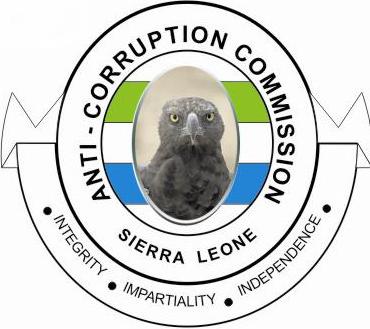By: Christiana Feima Jusu, Public Education Officer – ACC
Virginia Burden, once said “Cooperation is the thorough conviction that nobody can get there unless everybody gets there.” The significance of these words cannot be severed from the entirety of the seriousness in fightingcorruption, hence, Section 10 (1) of the Anti-Corruption Act No 12 of 2008 (as amended) hereinafter known as the Act, calls on the Commission to, “in the performance of its functions work in co-operation with any other persons or bodies as it may think appropriate and it shall be the duty of any such person or bodies to cooperate with the Commission”. This provision in the Act is in tandem with Article 13 of the United Nations Convention Against Corruption (UNCAC) which requires that “Each State Party shall take appropriate measures, within its means and in accordance with fundamental principles of its domestic law, to promote the active participation of individuals and groups outside the public sector, such as civil society, non-governmental organizations and community-based organizations, in the prevention of and the fight against corruption and to raise public awareness regarding the existence, causes and gravity of and the threat posed by corruption...”
As we commemorate Commissioner Francis Ben Kaifala’s four years in office as Head of the Anti-Corruption Commission (ACC), the relevance of partnership to winning the fight against corruption cannot be overemphasized in his quest to ‘laundering the image of Sierra Leone’ and ‘making corruption very expensive’, which, in the period under review is vividly evidenced in the number of institutions and individuals that the Commission has partnered with in a bid to achieve its general objective as enshrined in Section 7 (1) (a) of the Act: to take all steps as may be necessary for the prevention, eradication or suppression of corruption and corrupt practices.
Given the limited staff strength of the Commission, partnership and collaboration with like-minded institutions and individuals to winning the fight against corruption must be at the forefront should the Commission’s objectives be attained. In that regard, Commissioner Francis Ben Kaifala since his appointment four (4) years ago has extended the tentacles of the fight against corruption through the addition of weapons and warriors from far and near. It is his belief, and hence true, that corruption can only be won when all are on board – the public sector, private sector, civil society, social media influencers and bloggers, all of whom play pivotal roles in contemporary society to the growth of national and global development.
Corruption being part of our daily activities, it cannot be said that others in society may not be aware of the corrupt activities involved in by those who use public offices to amass wealth at the expense of the general good of society. But partnering with individuals and institutions holds the advantage to reduce corruption to its barest minimum if not eradicated by serving as watchdogs and monitoring public and private activities within the framework of the law.
Through these partnerships, the Commission has over the period under review received cogent intelligence leading to successful convictions. The effect of these partnerships include but not limited to the recent raids conducted at different locations across the country where candidates and other school authorities were arrested during the West African Senior School Certificate Examinations (WASSCE) for alleged Examination Malpractice contrary to Section 128 (3) of the Act.
In the four years of his leadership (Francis Ben Kaifala), the Commission has forged partnerships with Sixty seven (67) organizations (through letters of partnerships and accreditation) and signed Memoranda of Understanding (MoUs) with Twenty six (26) the highest number of partnerships forged in the entire 18 years work of the ACC, prior to his assumption of work. Some of the institutions the ACC partners with and have signed MoUs with are; Ministry of Energy, Ministry of Technical and Higher Education, the National Commission for Social Action (NaCSA), the Office of the Ombudsman, Youth Against Corruption, Radio Maria-Sierra Leone, Human Rights Commission-Sierra Leone (HRC-SL), Citizens Advocacy Network (CAN), United Citizens Against Corruption, the Liberia Anti-Corruption Commission, Centre for Accountability and the Rule of Law (CARL) and many more.
In all of these partnerships, the Commission has ensured to make it clear that the independence of institutions and individuals would never be lost and furthered that, the need for the partnership is to have corruption widely condemned by all and sundry in pursuit of the protection of public resources, revenues and property.




